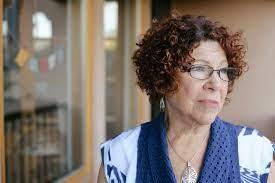On Leadership: Creating Conditions for Human Ingenuity to Flourish

In honor of Women's History Month, I thought I'd share concepts from women leaders who had a significant influence on my own leadership values and beliefs.
Margaret (Meg) Wheatley
 Margaret Wheatley is an author and management consultant who challenged commonly accepted leadership practices. Ahead of her time, Wheatley's work may be more relevant today than when it was originally published decades ago.
Margaret Wheatley is an author and management consultant who challenged commonly accepted leadership practices. Ahead of her time, Wheatley's work may be more relevant today than when it was originally published decades ago.
Wheatley declared that leaders must abandon command and control leadership because it is contrary to organizational health, and its adverse effects on employees actually reduce productivity. She encouraged leaders to shift to participative, self-organizing processes that foster the organization's natural resilient and creative nature. According to Meg, the primary mission of every leader is really to figure out how to re-engage staff.
Organizations as Living Entities
Central to Wheatley's beliefs is the law of nature that every living thing seeks to create a world in which it can thrive. Thus organizing is a naturally occurring phenomenon. (The world organizes to find its own effectiveness - and so do people in organizations.) Wheatley describes it as such:
"As a living system self-organizes, it develops shared understanding of what's important, what's acceptable behavior, what actions are required, and how these actions will get done. It develops channels of communication, networks of workers, and complex structures. And as the system develops, new capacities emerge. The system can do for itself (more efficiently) much of what leaders have felt necessary to do for it."
Leadership Principles to Foster Human Ingenuity
Wheatley outlined the following leadership principles to create conditions where human ingenuity can flourish:
Engage creativity through meaning.
As soon as people become interested in an issue, their creativity is engaged. If leaders want team members to be innovative, we must engage them in meaningful issues. (Leaders cannot presume or assert what is meaningful - they must work within the group to learn what has meaning.)
Depend on diversity.
In nature, life relies on diversity to allow it to adapt to changing conditions. If a system becomes too homogenous, it becomes vulnerable to environmental shifts. When leaders fail to encourage diverse ways of thinking and doing things, they destroy a system's capacity to adapt.
Involve everybody who cares.
People are intelligent creatures - they invent ways to get around roadblocks and ineffective policies, they create their own networks to accomplish objectives and develop strategies for learning. But this intelligence isn't accessible to the organization unless people are invited to solve and create. Too often, when we fail to invite people to co-create, their intelligence is applied later in the process as sabotage and resistance. If we want people's intelligence and support, we must welcome them as co-creators.
Encourage diversity as the path to unity.
All change begins with a change in meaning. However, we all see the world differently. Organizations can extract shared meaning without forcing people to accept someone else's viewpoint by creating the space for diverse perspectives to be shared. By genuinely listening to and examining differing perceptions, we can discover a unifying core. This unifying center provides shared meaning, transforms relationships, and galvanizes the organization for action.
Expect to be surprised by people's contributions.
Everyone - regardless of how they've been stereotyped, labeled, or misunderstood - has a contribution to make. Listening to our colleagues and doing meaningful work with them is transformative to relationships and organizations.
Ahead of her time indeed. If you're interested in learning more from Margaret Wheatley, check out the following works:
Finding Our Way: Leadership for an Uncertain Time
Who Do We Choose to Be?: Facing Reality, Claiming Leadership, Restoring Sanity
Leadership and the New Science: Discovering Order in a Chaotic World

